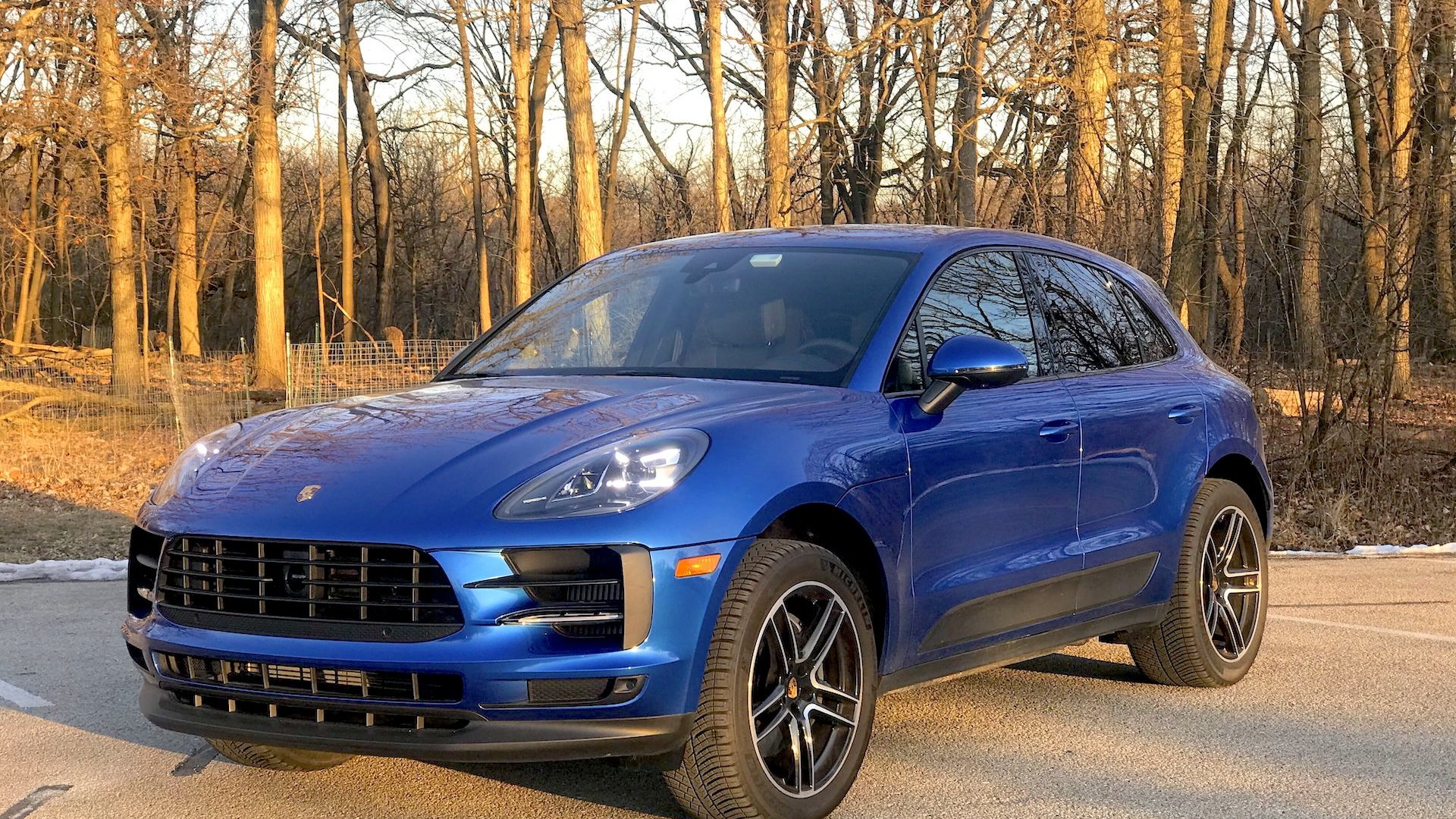
The Porsche Macan is the sportiest SUV on the market. Outfit
it with the Sport Chrono package, air suspension with adaptive dampers, and
carbon-ceramic brakes, and it’s a bundle of fun on a racetrack or canyon road.
But the vast majority of buyers don’t use it that way. They take the kids to
school, shop for groceries, commute to work, and upstage their neighbors.
I drove the Porsche
Macan S in Spain last year and loved its handling. Recently, I spent a
week in a 2020 Porsche Macan S and treated it like my daily driver in and
around Chicago. The experience gave me some insights into where it excels and
where it fails. Here are the hits and misses of the 2020 Porsche Macan S.
HIt: Porsche does drive modes right
Too many automakers pussyfoot the steps between drive modes.
Sport and Sport+ settings just aren’t sporty enough and the differences between
the modes are often hard to detect. That’s not the case with Porsche. Each step
along the way from Normal to Sport to Sport+ (only available with the Sport
Chrono package) is its own, identifiable setting. Normal mode works well for
everyday driving; the throttle isn’t too dull and the ride doesn’t wallow on
the freeway. The Macan S becomes more alert in Sport mode, though some drivers
will find the shift points too high-strung for commuting. All the settings are
high-strung in Sport+, so much so that I wouldn’t recommend it for street
driving. However, it’s a must for performance driving. And for those who want
it their way, Porsche offers an Individual mode to let drivers pick the
suspension, shift points, throttle response, and exhaust note settings they
want.
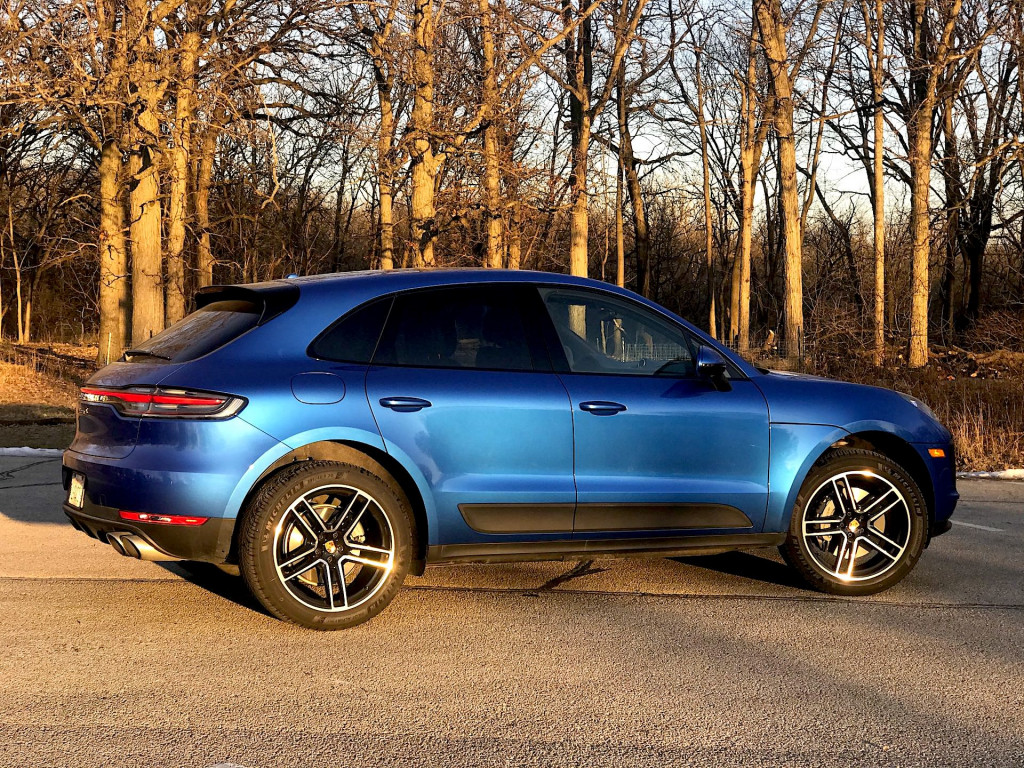
Miss: The options add up quickly
My tester was an S model with a smattering of options. The
Macan S’s $60,750 base price (including destination) tops its competitors, and
my tester had nearly $15,000 in options that brought the total to $74,840.
I’d choose some of those options, namely the Sapphire Blue
Metallic paint ($700), air suspension with adaptive dampers ($2,750), and Sport
Chrono package ($1,360) that comes with a dash-mounted stopwatch and Sport+
mode.
Some of the options annoyed me. Why should I spend $1,170
for adaptive cruise control on a vehicle that already tops $60,000? Same goes
for the $280 heated steering wheel, though I could see people gladly checking
that box in northern climates. I’m also annoyed that it costs $3,110 to get
Apple CarPlay. It comes in the Premium Package that also includes a Bose
surround-sound audio system, LED headlights that point into corners and have
automatic high beams, and auto-dimming mirrors. The $1,340 necessary to get
14-way power-adjustable front seats with memory left me thinking I’d stick with
the standard eight-way seats. And $3,140 for the Macan Turbo wheels felt like
an unnecessary expense given the variety of other good-looking wheels that cost
less or nothing at all.
Hit: It has a sports car seating position
Given the seating position offered by those 14-way seats,
maybe I would pay for them. The Macan S has the more prone seating position of
a sports car, just higher off the ground. The front of the seat bottom raises
to provide the thigh support and cupped seat configuration position I prefer.
The steering wheel is small and sporty and it telescopes far enough for my
elbows to bend about 90 degrees, which is ideal for performance maneuvers. I’d
have to try the base eight-way seats to see if they can provide the same
seating position. If not, I’d spend the $1,340.
Miss: The infotainment system needs some work
Unlike Audi, BMW, and Mercedes-Benz, Porsche hasn’t settled
on an infotainment interface and stuck with it. That makes the learning curve
steep for the new Porsche Communication Management system, even for repeat
buyers. It has a lot of functionality, but some of the choices Porsche made
befuddle me. One basic test is how easy a system scrolls through satellite
radio channels. It’s a task best served by a rotating knob. The Macan has that
knob, but Porsche uses it to pause, rewind, and fast-forward the music (enabled
by an internal hard drive). Instead, occupants tap icons on the touchscreen to
move up and down through satellite channels one at a time. Backward much?
The Macan also doesn’t have a USB Type A port; it only has
USB-C ports. I know that’s the future and the Mercedes-AMG
GLE 63 S I recently drove has the same issue, but with the money Apple
charges for charging cords, don’t make me get a USB-C cable before I have to.
How about ports for both?
Miss: It could use more space
The Macan has 17.7 cubic feet of cargo space behind the rear
seat and 53 cubic feet with the rear seats folded down. That’s usable space
that will work for a small family, but both measurements trail the BMW X3 by
about 10 cubic feet. The Macan’s fast rear roofline gives it an almost
coupe-like shape that cuts into rear cargo space. While most of the lost space
is up high, the Macan is also shorter than the BMW, and that limits the
more-usable space at floor level. The rear seat also has less leg room than many
competitors.
Hit: The trade-offs are worth it
In all, the 2020 Porsche Macan trades some of its utility
for style and performance. The infotainment system isn’t as easy to use as
those from rivals, and its space is compromised. However, it still has enough
utility to drive every day and its style and performance make it far more
engaging to drive than the SUV appliances so many Americans have embraced.
______________________________________
2020 Porsche Macan S
Base price: $60,750
Price as tested: $74,840
EPA fuel economy: 18 mpg city, 23 highway, 20 combined
The good: Seating position, delineated drive modes,
performance makes trade-offs worthwhile
The bad: Pricey options, tight on space, infotainment
by Kirk Bell
http://www.boscheuropean.com
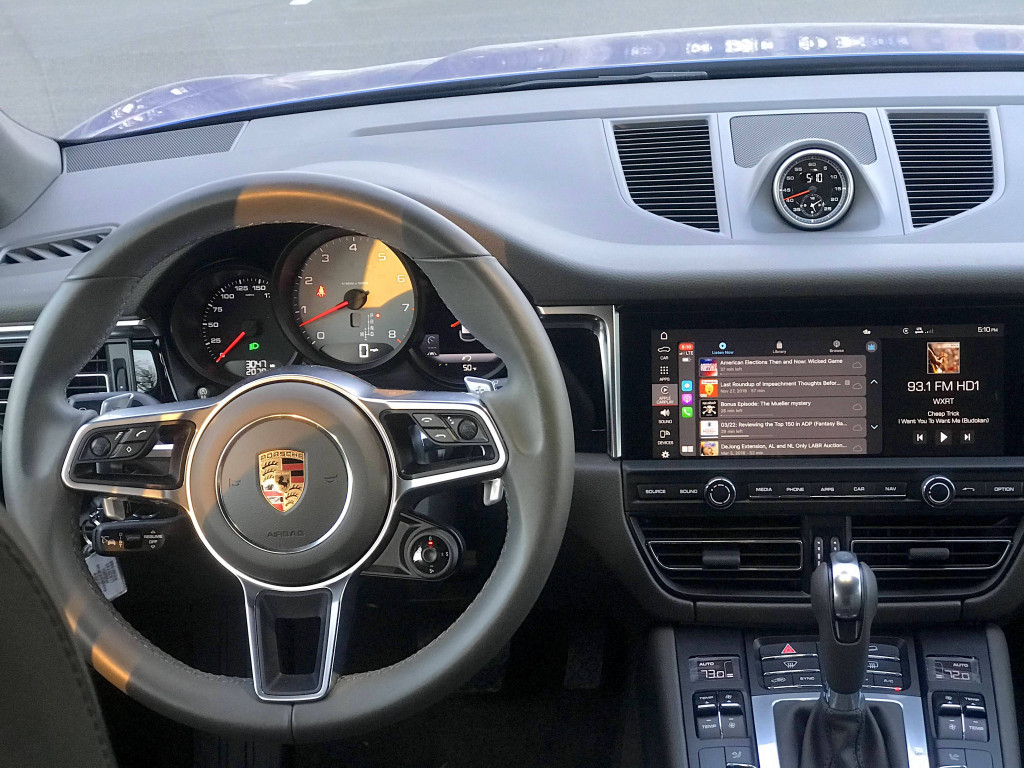
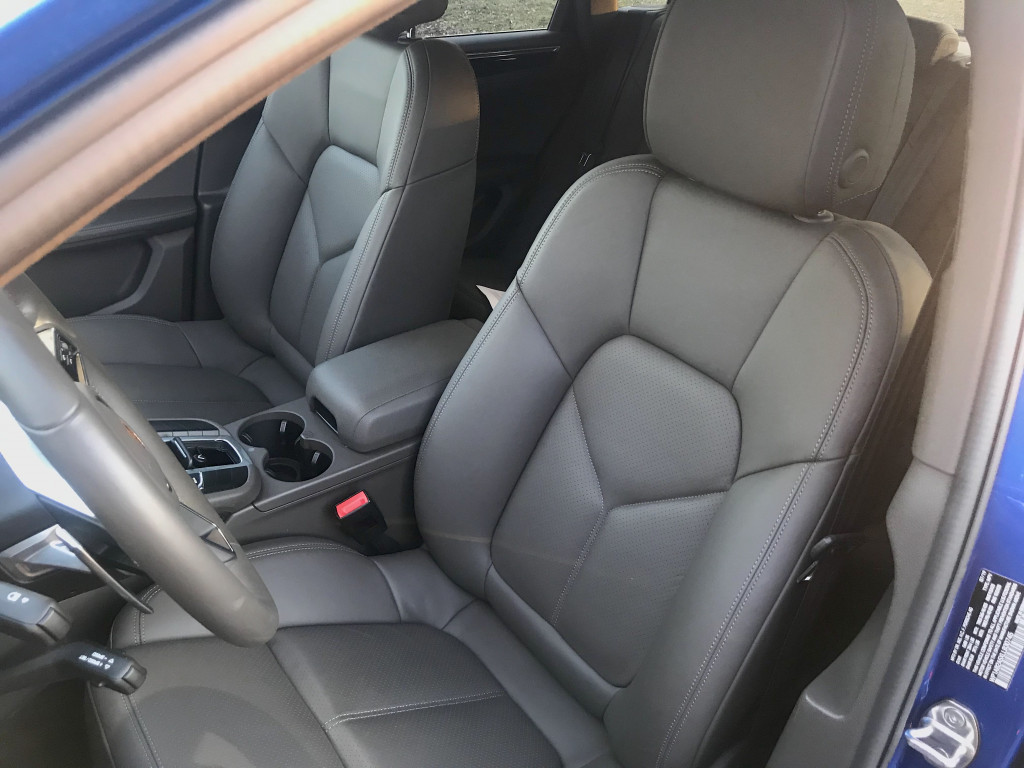
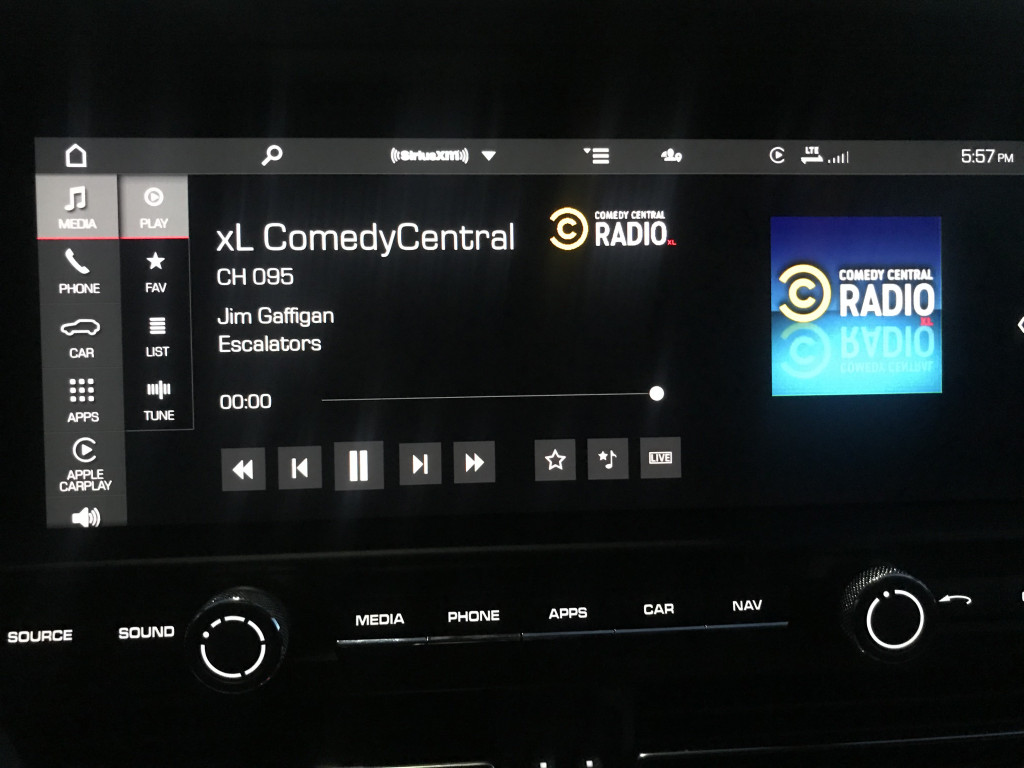
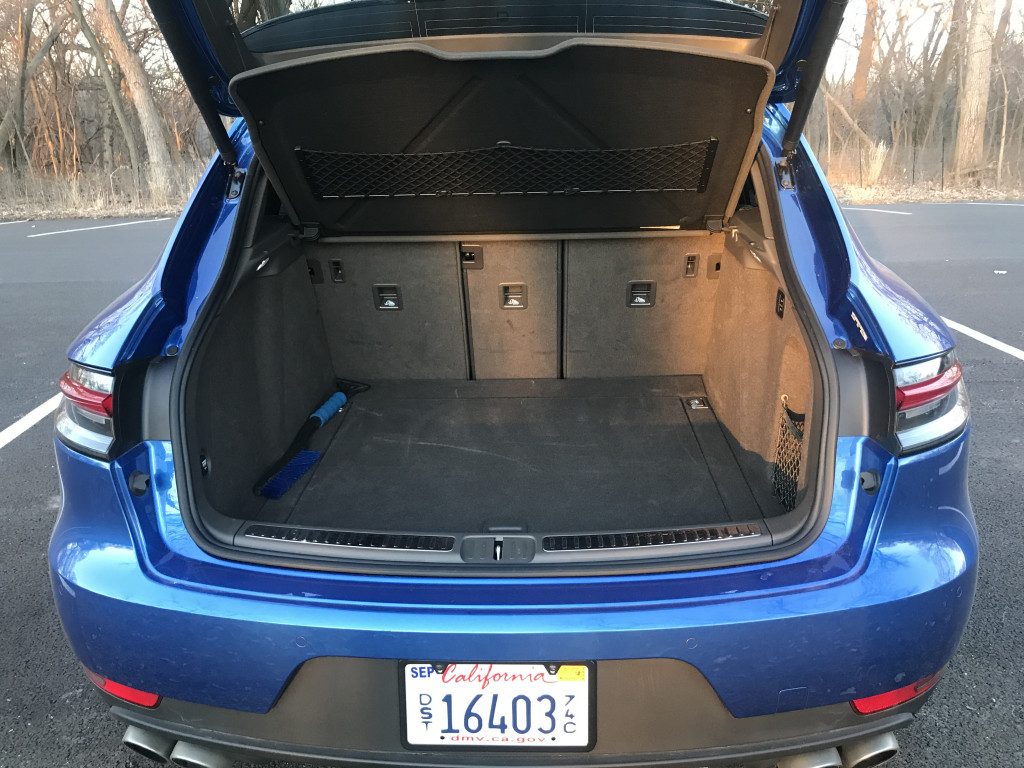
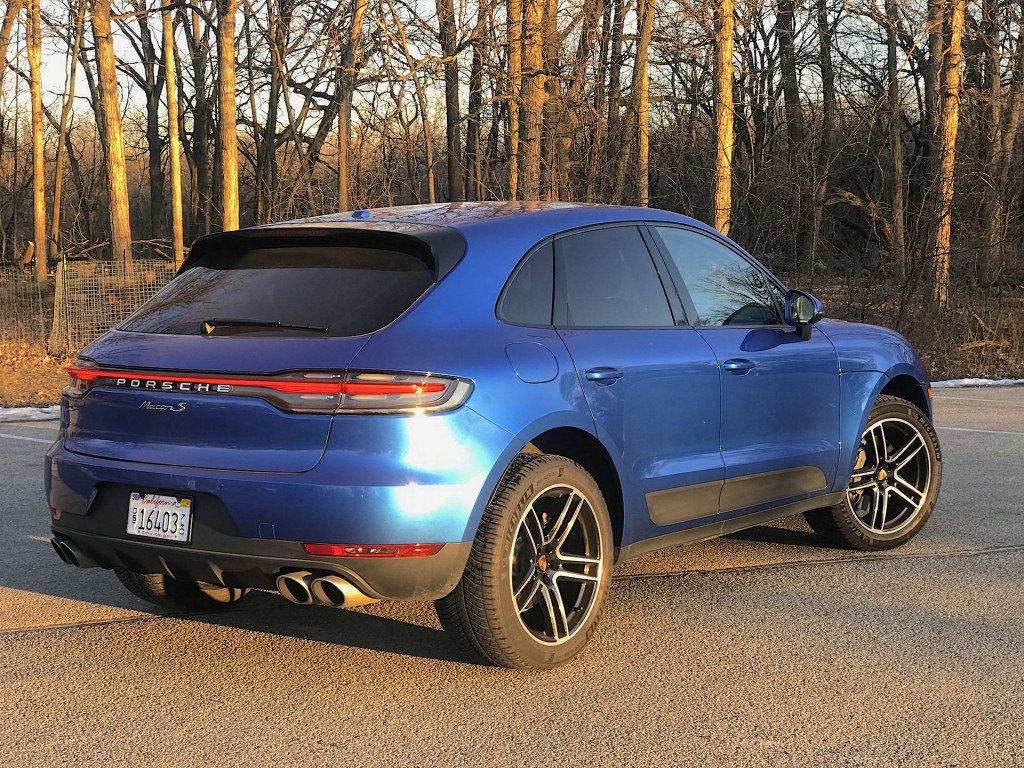
No comments:
Post a Comment